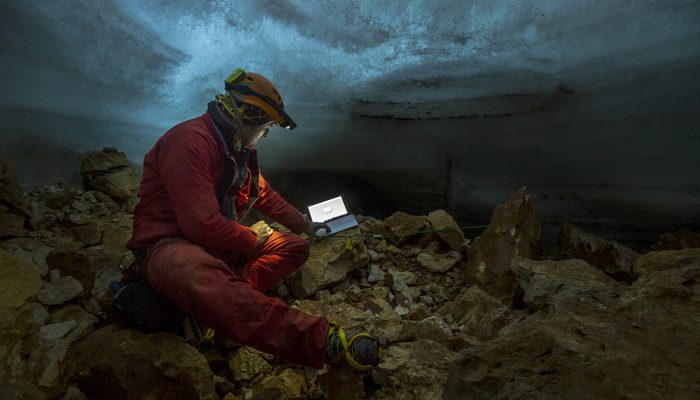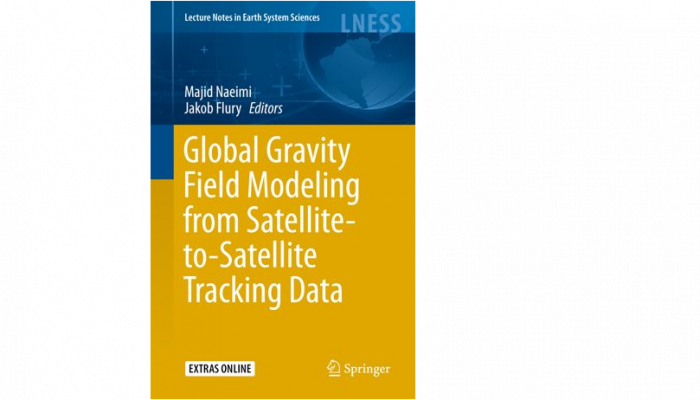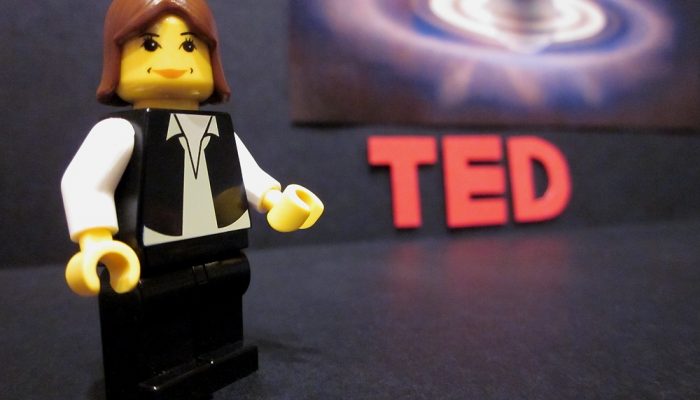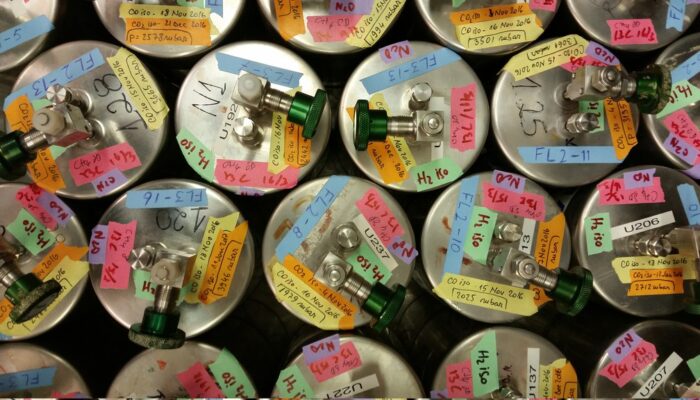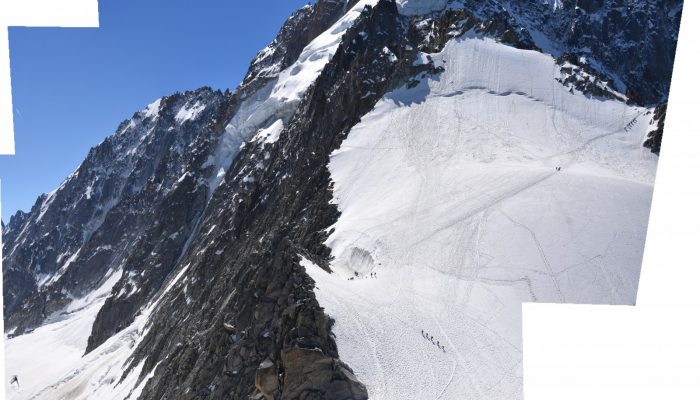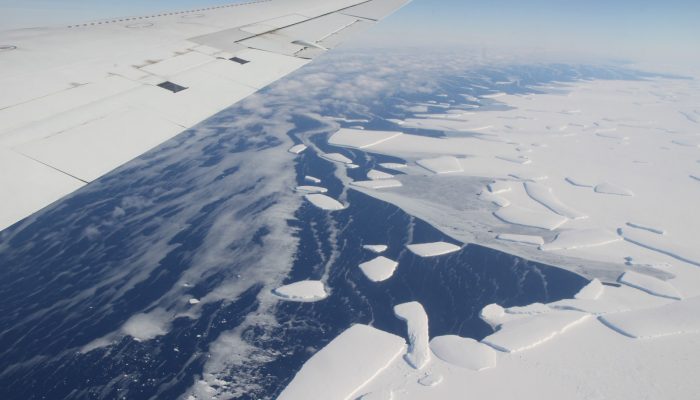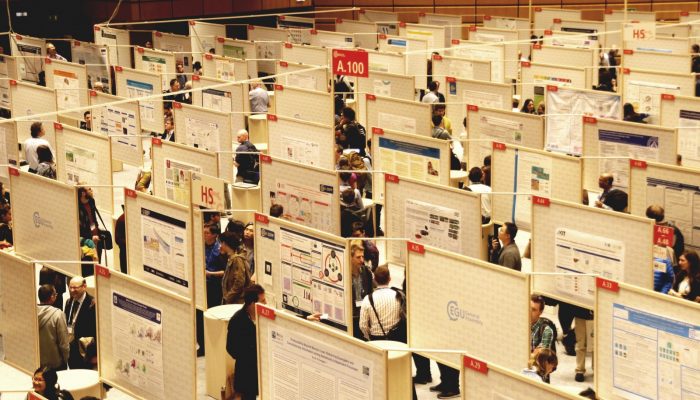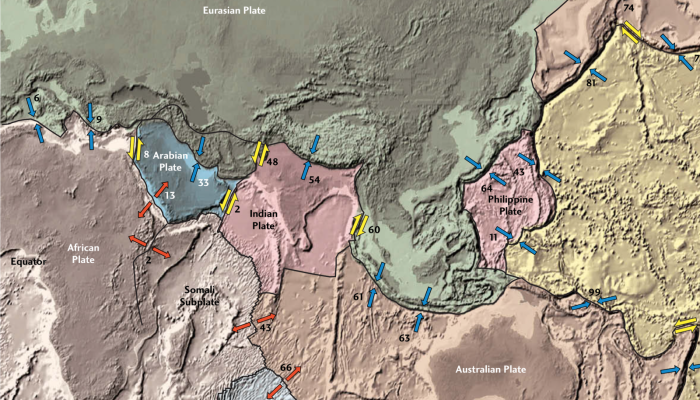The cryosphere can be found in various places in many forms and shapes… in the atmosphere, on land and sea. A lesser known part of the cryosphere is hidden deep in the dark, in the cold-karstic areas of the planet: Ice caves! The ongoing climate change affecting ice all over the world is now rapidly melting these hidden ice masses as well. We therefore need to hurry up and try to collect as ...[Read More]
Geodesy
Global gravity field modeling from Satellite-to-Satellite Tracking data
With the launch of the GRACE Follow-On twin satellites in 2018, the fundamentals and details of Satellite-to-Satellite Tracking (SST) measurements between low Earth orbiters find a lot of interest these days. The low-low SST technique was very successfully pioneered by the GRACE mission (2002-2017). The pair of satellites of GRACE Follow-On, a joint NASA/GFZ mission, carries two independent and co ...[Read More]
GeoLog
EGU 2019: Getting to Vienna, getting to sleep and getting to know the city
With the conference only a few weeks away here is a brief, and by no means comprehensive, introduction of how to get to Vienna and what to do when you’re there! Getting here Vienna’s International Airport is served by many of the major European airlines. If you would like to consider reaching Vienna by train or bus you’ll find more information on the General Assembly website. Since 2018, the EGU g ...[Read More]
GeoLog
GeoPolicy: The importance of communicating your research with the public
Science and innovation are a central priority for the European Union with the current research framework, Horizon 2020, allocating almost €80 billion to research and innovation over seven years, until 2021. It appears that policymakers are currently happy with this investment as they are looking to increase research and innovation spending to at least €100 billion in the next research funding fram ...[Read More]
GeoLog
Imaggeo on Mondays: Air samples from afar
I’ve taken many photos on fieldwork, everywhere from Malaysia to Antarctica but this particular photo was taken in my ‘home’ lab at the University of East Anglia (UEA) in Norwich, UK. Atmospheric scientists collect air samples canisters such as these from around the world: from high altitude research aircraft (such as the Geophysica), long-term measurement time series (such as Ca ...[Read More]
Cryospheric Sciences
Image of the Week – When “Ice, Ice Baby” puts rocks “Under Pressure”
Bowie and Queen said it first, and Vanilla Ice brought it back. But now, I’ve set out to quantify it: Pressure. Rocks in glacial landscapes can experience many different kinds of pressure (forces), from sources like regional tectonics or even the weight of the glacier itself. Our hypothesis is that smaller-scale pressures, caused by the formation of ice in small bedrock cracks (frost-weathering), ...[Read More]
GeoLog
Geosciences Column: Scientists pinpoint where seawater could be leaking into Antarctic ice shelves
Over the last few decades, Antarctic ice shelves have been disintegrating at a rapid rate, likely due to warming atmospheric and ocean temperatures, according to scientists. New research reveals that one type of threat to ice shelf stability might be more widespread that previously thought. A study recently published in EGU’s open access journal The Cryosphere identified several regions in Antarct ...[Read More]
GeoLog
EGU 2019 General Assembly programme is now online!
The EGU General Assembly 2019 programme is available here. Take a look and – if you haven’t already – register for the conference by 28 February to make the early registration rates! This year’s scientific programme of the General Assemby includes Union-wide Sessions, such as the medal lectures, great debates, short courses, education and outreach sessions, as well as townhall and splinter meeting ...[Read More]
Tectonics and Structural Geology
Meeting Plate Tectonics – Roger Buck
These blogposts present interviews with outstanding scientists that bloomed and shape the theory that revolutionised Earth Sciences — Plate Tectonics. Get to know them, learn from their experience, discover the pieces of advice they share and find out where the newest challenges lie! Meeting Roger Buck Roger Buck is a Research Professor at the Lamont-Doherty Earth Observatory at Columbia Universit ...[Read More]
Natural Hazards
Job matchmaking in the water sector
Sooner or later in your career, you have turned lunch breaks, entire weekends or nights into a job search. Looking for a job can be like dating: it can either be an easy going match, quickly finding the right job position for you, or it might be a long and unsatisfying search over millions of websites. The climax arises if you want to use your past research expertise into something new, a multidis ...[Read More]

